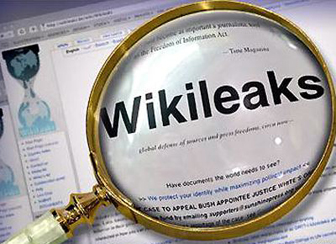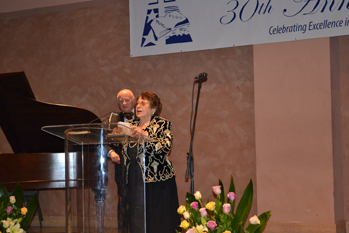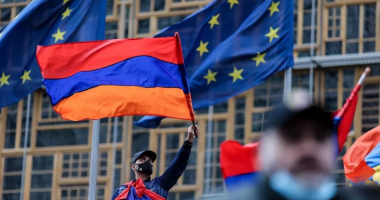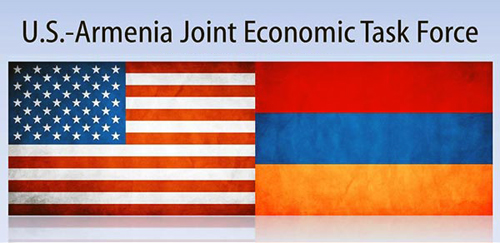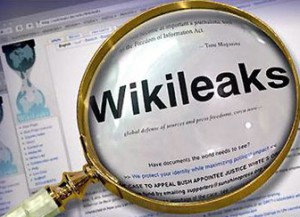

In the document published by The Guardian, US Ambassador to Armenia, Marie Yovanovich, speaks about separate meetings she held with Armenia’s President Serzh Sarkisian and the head of Armenia’s National Security Service (NSS), Gorik Hakobian, on January 14, 2009.
The cable is significant in that Sarkisian (who was Minister of Defense at the time in 2003) acknowledged the arms order from Bulgaria and did not deny that it made its way to Iraq. “Sarkisian acknowledged the weapons purchase from Bulgaria, and that “neither he nor the NSS Chairman challenged our information that these weapons were then transferred to Iran/Iraq” the document states.
”Both men indicated that there would be an investigation into how the weapons went from Armenia to Iran/Iraq,” reads the document.
”Hakobian seemed to indicate that the blame most probably lay with the Bulgarians and perhaps unauthorized Armenians acting on their own,” it added.
Further, it says that Ambassador Donald Mahley and his delegation presented Armenian officials with some documents proving that a weapons purchase had taken place between Armenia and Iran.
Ambassador Mahley, according to the document, spoke also of possible sanctions and said that the US wants to make sure no such thing will ever repeat.
Apparently, the Armenian Ministry of Defense had ordered the arms from a Bulgarian company and an Armenian intermediary company was apparently involved — most probably linked to the then Defense Minister Serzh Sarkisian. Some of these weapons actually found their way to Iraq and were part of an actual attack on U.S. forces. The cable almost directly implicates Serzh Sarkisian who signed off on the order. “The end-user certificate was signed by former Armenian Minister of Defense (now President) Serzh Sarkisian, which offered the Government of Armenia’s assurance that the weapons would remain within the possession of the Armenian Government.”
Following is excerpts from one of the U.S. cables disclosed by WikiLeaks.
“The separate meetings on January 14 with NSS Chairman Hakobian and President Sarkisian regarding the Iran export control issue were both positive and constructive. Sarkisian acknowledged the weapons purchase from Bulgaria, and neither he nor the NSS Chairman challenged our information that these weapons were then transferred to Iran/Iraq. Both men indicated that there would be an investigation into how the weapons went from Armenia to Iran/Iraq. Hakobian seemed to indicate that the blame most probably lay with the Bulgarians and perhaps unauthorized Armenians acting on their own. Probably in an attempt to minimize U.S. demands, they also noted that there have been significant reforms and personnel changes since the incident. The President reiterated that cooperation with the U.S., including on security and export control, was an Armenian priority, and that the GOAM, with the NSS as the lead, would discuss the proposed Memorandum of Understanding with the expert team on January 15.
Somewhat surprisingly, the President has reversed the mantra he has repeated for the last four months that the weapons transfer “did not happen and could not have happened.” It’s not clear what has prompted this abrupt climb down, but it is probably some combination of solid evidence, a compelling presentation, an understanding of the consequences non- cooperation could bring, a desire to get off on the right foot with the new administration — and a Soviet-style calculation that they can sign the MOU, but probably won’t really have to implement it.
Later in the afternoon, President Sarkisian received Ambassador Mahley. Sarkisian opened the meeting by noting that building relations with the United States is of vital interest to Armenia and that security is an important component in the overall bilateral relationship.
Ambassador Mahley clarified that the information we were sharing was obtained by the USG using its own sources and methods. Earlier Chairman Hakobian had asked whether he could approach the Bulgarians; if he did so, it was possible that the Bulgarians would be unaware of the case, Mahley indicated.
President Sarkisian said the GOAM wants to cooperate with the U.S. on export control and will examine the MOU. He said he had certain questions, and the NSS would take the lead in working with Ambassador Mahley and the experts group the following day. The President concluded that the GOAM did not have and had no interest in cooperating with Iran on weapons sales.”
High-Ranking Clergy in the Defendant’s Seat
By KRIKOR KHODANIAN The political developments unfolding in Armenia have taken a…
- MassisPost
- July 7, 2025
- No comments
- 3 minute read
Open Letter on the Proposal to Rename the Armenia-Turkey Border Crossing After Talat Pasha
We express our deep concern and disappointment regarding the recent proposal introduced…
- MassisPost
- July 3, 2025
- One comment
- 2 minute read
Pashinyan’s Visit to Turkey and Beyond
By KRIKOR KHODANIAN At the invitation of Turkish President Recep Tayyip Erdoğan,…
- MassisPost
- June 29, 2025
- No comments
- 3 minute read
“I Still Can’t Believe What Happened on June 20”
By LUSYEN KOPA Exactly three months ago, I wrote an article titled…
- MassisPost
- June 26, 2025
- No comments
- 4 minute read

